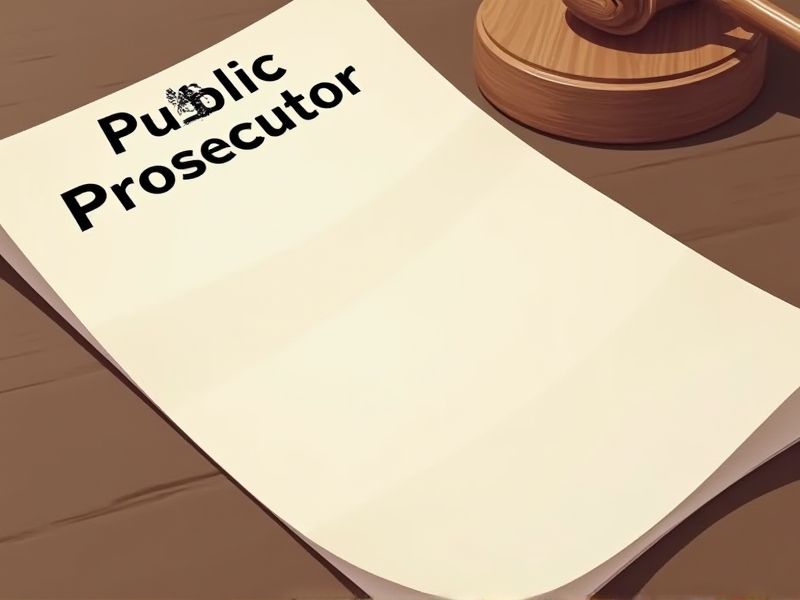
Public Prosecutors play a critical role in the justice system, requiring a deep understanding of legal processes to uphold the law effectively. Specialized certifications ensure they possess the necessary skills and knowledge to navigate complex legal cases and maintain ethical standards. Certification programs often provide training in courtroom procedures, legal research, and case management, which are vital for successful prosecution. Here are some essential certifications that a Public Prosecutor might need.
State Bar Admission Certification
State Bar Admission Certification ensures that a public prosecutor has met the standard legal qualifications and ethical guidelines required to practice law. It establishes credibility and trustworthiness, essential for handling sensitive legal matters and upholding justice. The certification also signifies an understanding of legal procedures and the ability to interpret and apply the law effectively. Without it, the credibility of a prosecutor's actions and decisions in court would be compromised.
Criminal Law Certification
Criminal law certification equips public prosecutors with specialized knowledge and skills necessary to effectively navigate complex legal cases. A certified prosecutor is better positioned to interpret laws accurately and apply them during trials. This certification enhances credibility and ensures adherence to legal standards. Consequently, it leads to higher efficiency in prosecuting criminal cases and upholding justice.
Trial Advocacy Certification
Trial Advocacy Certification enhances a public prosecutor's courtroom skills by offering specialized training in evidence presentation and legal argumentation. This certification increases the credibility of prosecutors through demonstrated competencies in trial procedures. It also prepares prosecutors for unforeseen legal challenges by simulating complex case scenarios during training. Obtaining this certification can boost public trust and confidence in the legal system by ensuring that prosecutors are well-equipped to seek justice effectively.
Legal Ethics Certification
Legal ethics certification is needed for a public prosecutor because it establishes a framework ensuring they adhere to principles of honesty, fairness, and integrity. This certification helps maintain public trust, as prosecutors wield significant power over legal outcomes that impact individual lives and society. Certified prosecutors are better equipped to handle complex ethical dilemmas arising during legal proceedings, ensuring justice is pursued lawfully. A standardized ethical code reduces misconduct risks, thereby enhancing the legal system's credibility and reliability.
Evidence Law Certification
Evidence Law Certification equips public prosecutors with crucial expertise in handling and presenting evidence, directly impacting the efficiency of the judicial process. Mastery in evidence law enhances a prosecutor's ability to build strong cases, increasing the likelihood of favorable trial outcomes. Comprehensive understanding reduces the risk of legal errors, subsequently improving courtroom performance. Certification fosters public trust by ensuring prosecutors adhere to standardized legal practices.
Forensic Investigation Certification
Forensic Investigation Certification equips public prosecutors with a deeper understanding of forensic evidence, enhancing their ability to build robust cases. This certification ensures prosecutors can accurately interpret forensic reports, which is critical in cross-examining expert witnesses. Possessing such expertise increases the credibility and effectiveness of the prosecutor in court. As forensic evidence plays a central role in modern legal proceedings, this certification is increasingly indispensable for thorough case preparation.
Mediation and Conflict Resolution Certification
Mediation and Conflict Resolution Certification equips public prosecutors with skills to effectively manage and resolve disputes outside of court, decreasing the caseload and promoting community harmony. Prosecutors often encounter situations where solutions through negotiation rather than litigation save time and resources, mitigating prolonged court proceedings. This certification provides prosecutors with strategies to foster constructive communication, helping to prevent conflicts from escalating into crimes. Such training enhances their capability to work collaboratively with law enforcement, reducing recidivism and building public trust in the justice system.
Professional Legal Writing Certification
Professional legal writing certification enhances clarity and precision, reducing misinterpretation in legal proceedings. It ensures public prosecutors effectively communicate complex legal arguments, strengthening their cases. Improved writing skills enhance document accuracy and persuasiveness, leading to more favorable outcomes in court. The certification also standardizes legal writing practices, fostering consistency and professionalism across legal documents.
Advanced Criminal Procedure Certification
Advanced Criminal Procedure Certification ensures public prosecutors understand the latest legal frameworks and procedural nuances, reducing the risk of case dismissal due to procedural errors. This certification also equips them with tools to effectively handle complex cases, enhancing conviction rates and ensuring justice. The continuous evolution of criminal laws necessitates updated knowledge, enabling prosecutors to make informed decisions and strategize effectively in court. Such certification underscores competence and commitment, fostering public trust in the justice system.
Public Policy and Legal Analysis Certification
Public Policy and Legal Analysis Certification enhances a public prosecutor's ability to understand the broader socio-political impacts of legal decisions. It provides analytical tools to evaluate how laws affect different segments of society. This certification aids prosecutors in formulating arguments that are not only legally sound but also aligned with public interest. Obtaining such certification demonstrates a commitment to informed and balanced decision-making in the judicial process.
Summary
When you, as a reader, learn that a Public Prosecutor obtains certifications, it signifies enhanced expertise and specialization within the legal domain. This can lead to more effective case management, resulting in increased trust from both the public and the legal community. Such certifications can promote ethical practices and consistency in legal proceedings. Consequently, overall judicial outcomes might improve due to a higher standard of prosecutorial conduct.
